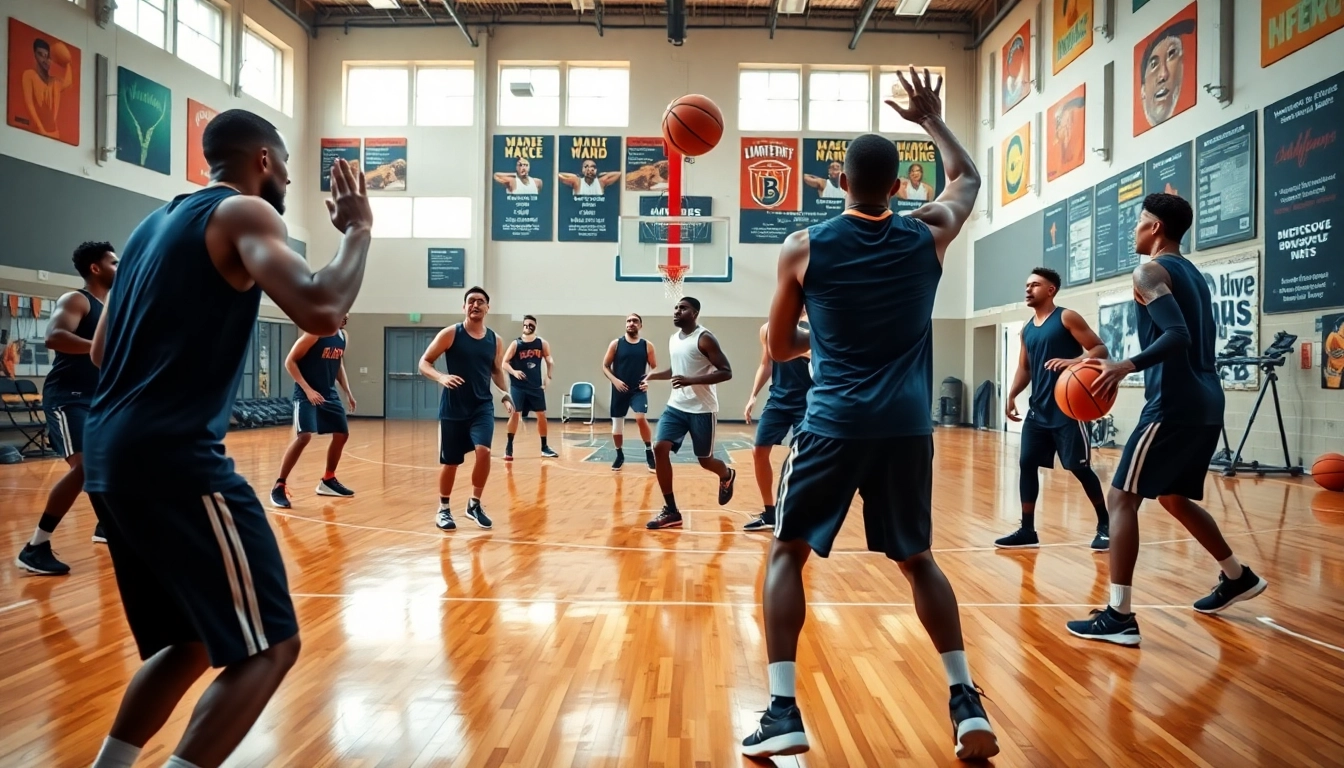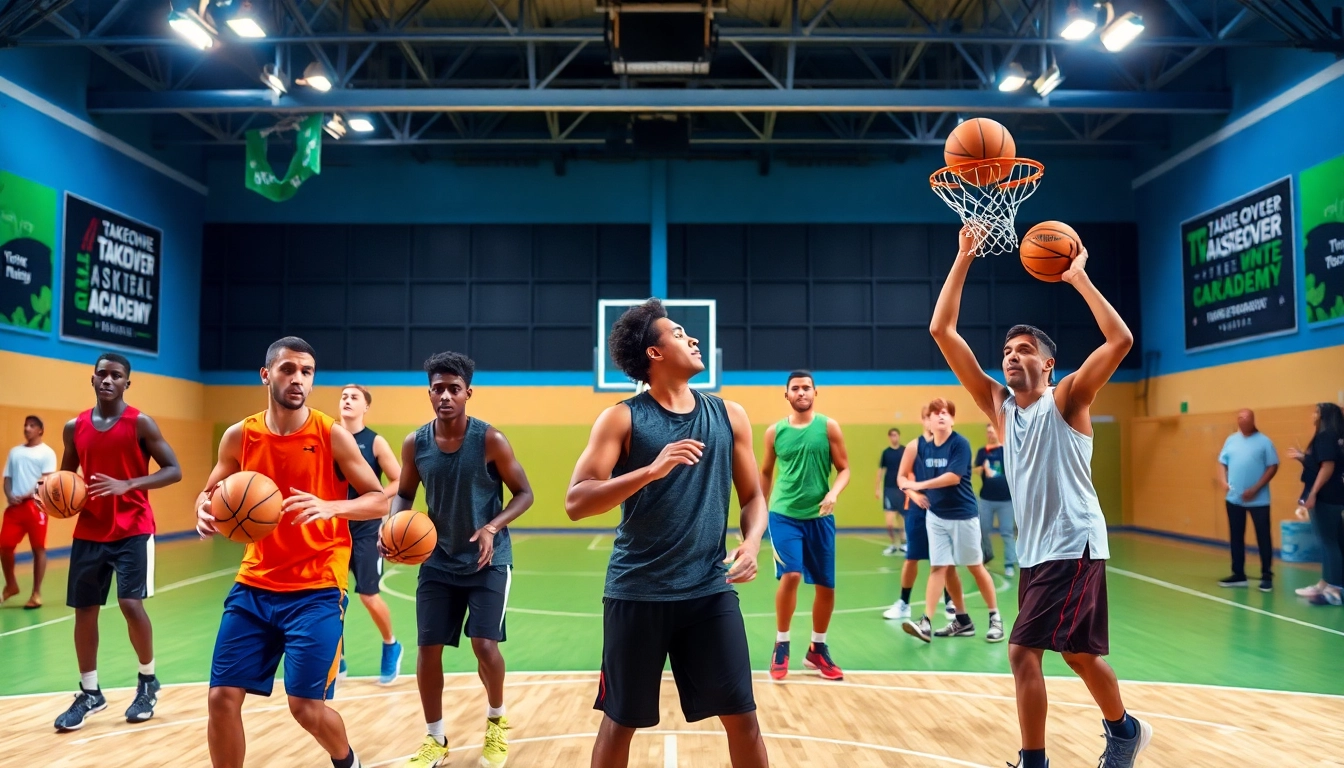
Understanding Basketball Training Programs
Introduction to Best Basketball Training Programs
In the world of basketball, skill and technique are essential for success on the court. Whether you’re a budding talent or an established player, best basketball training programs offer invaluable resources designed to improve your game. These programs cover a multitude of facets from shooting mechanics to defensive strategies, all tailored to meet the player’s current skill level and aspirations.
Why Training is Essential for Improvement
No athlete achieves greatness without dedicated training. For basketball players, the court isn’t just a place to showcase talent; it’s a battleground where strategic preparation, physical conditioning, and skill development converge. Consistent training helps players enhance their endurance, refine their shooting accuracy, and improve their game intelligence, ultimately leading to better performance during competitions.
Types of Training Programs Available
Basketball training programs are versatile and can be categorized into several types, ensuring that players find the right fit for their needs:
- Individual Training: One-on-one coaching to focus directly on personal weaknesses and strengths.
- Group Clinics: Sessions conducted in small groups, allowing for peer interaction and competitive drills.
- Online Training: Virtual classes that provide flexibility and access to expert coaches from anywhere in the world.
- Camps: Intensive training sessions held over a few days, focusing on various skills and strategies.
- Strength and Conditioning: Programs focused on enhancing physical performance through weight training and agility drills.
Finding the Right Program for You
Evaluating Your Skill Level and Goals
Before enrolling in any basketball training program, it’s crucial to assess your skill level and set realistic goals. Beginners may benefit from foundational skills training, while advanced players might look for specialized programs that enhance specific areas such as ball-handling or shooting under pressure. Understanding what you want to achieve will help guide your decision in finding the right program.
Assessing Training Locations and Formats
Location can significantly impact your training experience. Consider whether you prefer a nearby gym or training facility for convenience, or if you’re open to traveling for a renowned program. Additionally, assess whether you prefer traditional in-person settings, which allow for immediate feedback from coaches, or if you’re comfortable with the evolving online training platforms that provide recorded sessions and remote coaching.
Choosing Between Online and In-Person Programs
The debate between online and in-person training has gained traction, particularly during the digital age. Online training offers flexibility and often a broader variety of resources and recorded sessions, while in-person training provides personalized attention and real-time coaching. Your learning style, commitment level, and goals will ultimately dictate which environment better suits you.
Essential Elements of Effective Basketball Training
Key Drills to Incorporate in Training
Effective training programs incorporate a variety of drills designed to enhance specific skills. Here are some vital exercises:
- Shooting Drills: Include spot shooting, free throw practice, and shooting off the dribble.
- Ball Handling Drills: Perform cone dribbling exercises, crossovers, and figure-eight dribbles to enhance ball control.
- Defensive Drills: Work on lateral movement, closeout techniques, and one-on-one defense scenarios to improve toughness and agility.
- Team Play Drills: Focus on scrimmage plays, offensive plays, and defensive strategies to build cohesion and understanding among players.
Importance of Strength and Conditioning
Physical fitness plays a crucial role in a basketball player’s performance. Strength and conditioning programs focus on developing power, agility, and endurance crucial for the fast-paced nature of the sport. Key elements include weightlifting, plyometric exercises, and agility drills, which help players maintain peak physical condition throughout both practice and games.
Mental Skills and Focus Training
Basketball is as much a mental game as it is physical. Training programs increasingly incorporate mental conditioning to improve focus, resilience, and tactical thinking. Techniques such as visualization, mindfulness, and goal-setting exercises can enhance a player’s mental toughness, allowing them to perform under pressure.
Top Programs to Consider
Local Training Programs and Camps
Finding respected local basketball training programs can greatly enhance your skills. Facilities like IMG Academy offer structured training camps designed for players of varying skills. Furthermore, many local high schools and community centers hold tournaments and practices that can be worthwhile training opportunities.
Renowned Online Training Courses
With the advent of online training, numerous platforms now offer structured courses for basketball players. Websites such as Pure Sweat and Pro Skills Basketball provide access to valuable training content, including workout plans and instructional videos. Such resources allow athletes to learn at their own pace while receiving expert coaching advice.
Scholarship Opportunities in Coaching Programs
Many basketball training programs also offer scholarships or financial aid for dedicated athletes. Investigating options such as the NCAA’s scholarship programs can lead to further opportunities for elite coaching and training experiences. Players should take advantage of these programs to advance their training without financial constraints.
Evaluating Your Progress and Making Adjustments
Methods for Tracking Performance Improvements
Tracking your progress is essential for every athlete striving for improvement. This can include maintaining a training diary to log workouts, setting performance benchmarks for shooting percentage and game statistics, and seeking feedback from coaches and peers. Regular evaluation helps recognize areas for improvement and allows athletes to celebrate their progress.
When to Reassess Your Training Program
Regular reassessment of your training program is crucial. Players may find that after a particular goal is achieved, it is essential to pivot to new objectives to continue developing skills. Indicators such as plateaued performance or recurring mistakes can suggest it’s time to adjust your training variables.
Integrating Feedback from Coaches
Coaches provide invaluable feedback based on their observations during practices and games. Actively seeking input can guide players toward adjusting techniques or practices that might not yield the expected results. Regular meetings with coaches to discuss performance and plan future training regimens can substantially enhance a player’s development.







